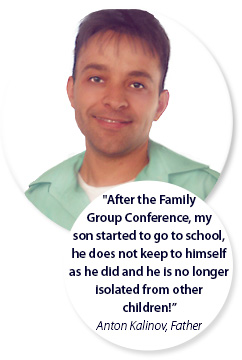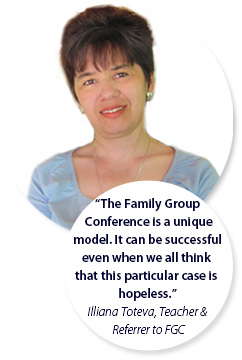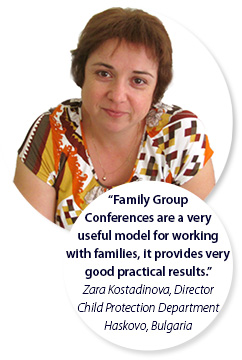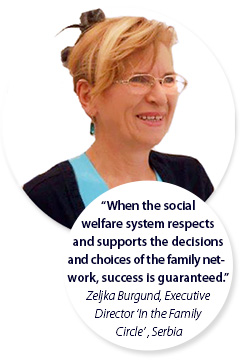Family Group Conferencing
Being in control of one’s own life
At times, people find it hard to cope. Certain events in daily life have so much impact, are so complicated, or overwhelming, that help is welcome. How can this help be obtained, while remaining in control of one’s life? The vision on which Family Group Conferencing (FGC) is based, offers a direction.
In this vision, individual problems of citizens are not transferred to (care) organisations and/or governmental bodies, but remain the responsibility of citizens. Together with people they know well – their own network of family and friends – they construe a plan to reach a solution. In a formal Family Group Conference this process is facilitated by an independent coordinator, who does not benefit in any way from the contents of the plan.
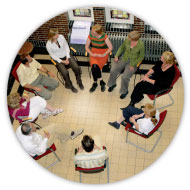
Applying FGC
Several contexts and varieties
A FGC may be applied in several contexts and varieties, like:
1.) Improving the conditions of life – child, adolescent, adult, elderly person or family.
2.) Restoring relations between perpetrators and victims – to lessen the damage following a misdemeanor or crime, to prevent isolation or marginalisation of the perpetrator, and to reduce the chance of recurrence.
3.) Solving friction, tension or conflicts – in a neighborhood, district, school or organisation.
4.) Improving the functioning of an individual pupil – in primary or secondary schools. This may concern truancy, or dropping out of school, dyslexia, having a special talent, or making a dream come true (like: how to combine educational obligations and a sports career?).
Bridging two worlds
Effective and cost saving
Hundreds of researches and studies in Europe have proved that FGC is effective, in various situations and diverse cultures. Most plans are actually executed, with the result that problems get solved and escalation is prevented. In many cases, working from this vision is also cost saving. People who were regarded as a problem are now providing solutions that make them less depending on institutions. Family Group Conferencing bridges the life world of citizens and the system world of (care) organisations and government.
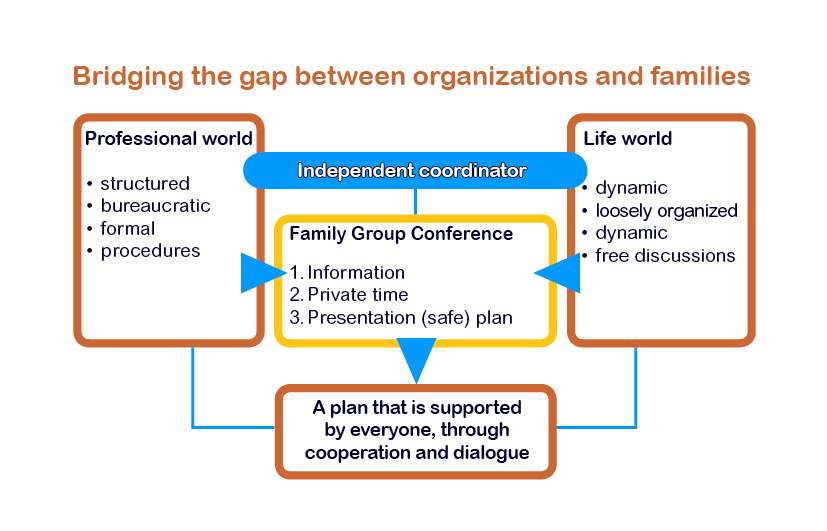
Legal mandate
When official intervention is imminent
In New Zealand, where FGC originated, the right on FGC was incorporated in the law in 1989. It is standard procedure there that people have the initial right to provide a solution in case of troubles. In Northern-Ireland, Canada, and several states of Australia and the U.S.A. there is a legal mandate as well.
The Netherlands have reached an important mile stone in 2015: a new Youth law affirms the right of citizens to make their own plan, in case of imminent governmental intervention, together with their own network of family and friends. In some other European countries, similar developments are in progress.
PURPOSE, VALUES AND PROCESSES OF FGC
The participants of the European FGC Network meeting in 2011 (Utrecht, the Netherlands) created a document about the purpose, values and processes of Family Group Conferencing. In 2012, in Sofia (Bulgaria), this document was revised. The members of the European FGC Network accepted the adaptations unanimously.
Purpose, Values and Processes of FGC 2012 (pdf)
